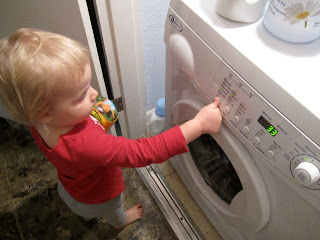 After reading a few articles by Alfie Kohn http://www.alfiekohn.org/articles.htm ( I have read "Parenting With Strings Attached" and "Five Reasons to Stop Saying Good Job") I wanted to read his book Unconditional Parenting. I have a feeling I'll need to write a few blogs about it, but so far I am only through three chapters...
After reading a few articles by Alfie Kohn http://www.alfiekohn.org/articles.htm ( I have read "Parenting With Strings Attached" and "Five Reasons to Stop Saying Good Job") I wanted to read his book Unconditional Parenting. I have a feeling I'll need to write a few blogs about it, but so far I am only through three chapters...
So, to start off, I started feeling very confused by his idea of "love withdrawl". I understand the negative implications of praise, and also punishment, and the importance of respecting our children's emotions and even the importance of their defiance. But he confuses me when he talks about "love withdrawl". It sounds to me like it doesn't matter how the parent sees it, what matter's is if the child feels unloved or not unconditionally loved or accepted when they do something their parent doesn't like. So, it so far sounds to me like the parent isn't supposed to show that they get mad at the child at all, for fear that the child will feel conditionally loved and then therefore have a self-esteem that is contingent on other people's approval...which can make for a miserable existence! However, I just think it is not humanly possible to not get mad at your kids sometimes! They can be so trying!! With all the testing of boundaries, one is bound to get pushed to the edge, and react impatiently. For Lucy's sake, I hope my occassional impatience with her need to hide in the closet when I want to change her diaper, doesn't scar her for life and turn her intrinsic motivation to extrinsic... I mean really, this is a lot of responsibility! And part of me is just not buying it!
The part of me that is not buying the severity of this idea wants to believe that it is ok to show healthy emotions (including occasional anger) and that possibly it is even good! That maybe having these disputes and then being able to come back together, and reassuring my love for her in the way I do on a daily basis, will actually teach her her that in relationships you can have disputes, but it doesn't change the way we love eachother. And that anger is an acceptable feeling. I think that kids are smart and will see through feigned patience. And know that the parent is not acting authentically and then maybe conclude some other (way worse) reason for why the parent is mad. Maybe...just maybe... If you don't tell your child you are feeling frustrated that they won't come out of the closet to change their diaper, they will still feel unloved!
But I always forget this important tid-bit! To quote Magda Gerber, (when a child is testing limits and not cooperating) " There are 2 attitudes that are helpful in dealing with these games: 1.) you enjoy and acknowledge this playfulness; but when it is time to go on, 2.) you are firm. You allow a little time to play the game, and let the child know you are playing, but then you become firm and say it is time. 'Can you do it yourself, or shall I do it?'..." That part is my normal mode of operation, but here is the part I forget: " Try not to get angry. Be matter of fact and not aggressive. Anger only excites the child to want to play more." and you can say something like " I would have liked to have done it together, but now I have to do it for you. Maybe you can still help. Here, pull this is up." Sooo, I do notice this is true. When I start getting getting frustrated and Lucy knows it, she not only wants to hide in the closet, she decides it's time to go to the living room and color with crayons... Aaah!!
So, I guess I just really went on and on there...but these things have been on my mind. I am off to bed now to read more of the book and see what he suggests as alternatives to manipulative praise and Time-Outs...























































